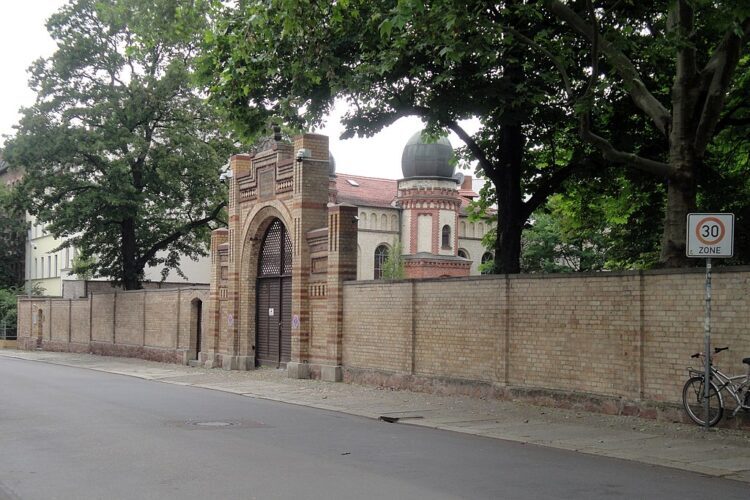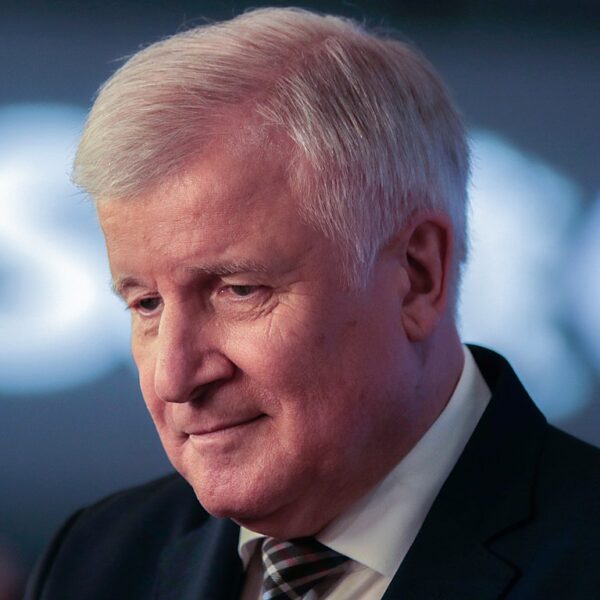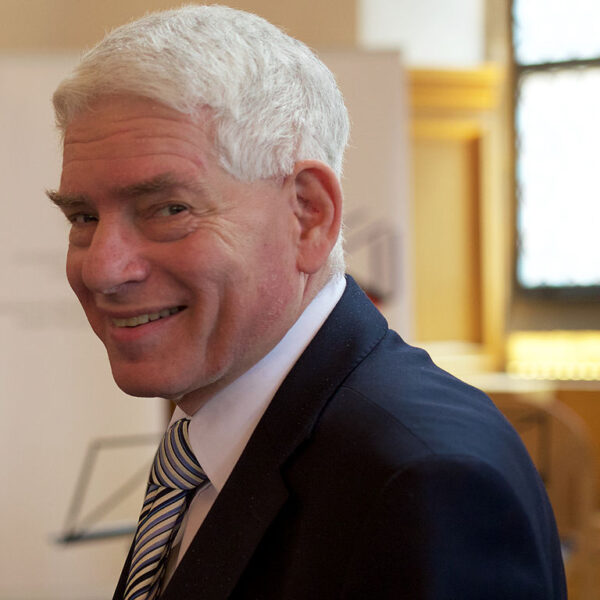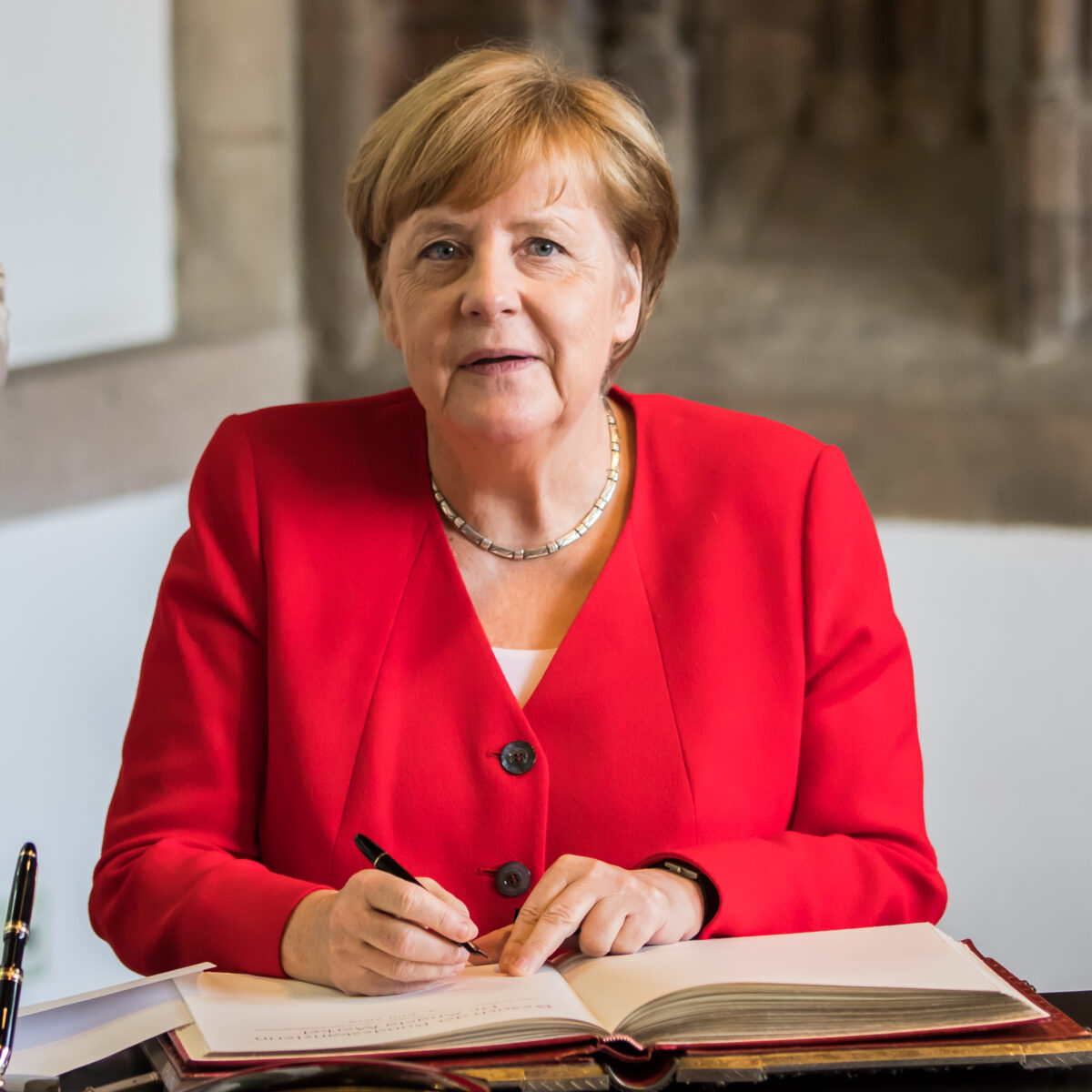German Chancellor Angela Merkel struck a balanced tone recently when she hailed the emergence of a vibrant Jewish community in postwar Germany, but denounced the uptick in racism and antisemitism in her country.
Celebrating the 7oth anniversary of the founding of the Central Council of Jews, Germany’s leading Jewish organization, Merkel made two major points.
“We can be glad of a flourishing Jewish life,” she said in a reference to the community’s tremendous growth since the influx of tens of thousands of Russian Jews into Germany starting in the late 1980s and still continuing. “But that is only one part of today’s reality. The other part of today’s reality is that many Jews don’t feel safe and respected in our country, and it causes me great concern.”
Merkel then addressed a dark and recurring phenomenon in German society: “It is a disgrace, and it shames me deeply, how racism and antisemitism never disappeared, but for some time now they have become more visible and uninhibited. We know how quickly words can become deeds.”
She was referring to a botched attack by a neo-Nazi on a synagogue in the eastern city of Halle last Yom Kippur. The assailant wanted to kill a maximum number of Jews, but his plan disintegrated because he was unable to break down the heavy wooden door. Instead, he murdered two German civilians nearby.

What if he had succeeded in carrying out his grisly mission? The spectre of Jewish blood spilled on German soil on the holiest Jewish holiday would have been utterly catastrophic, a huge setback to Germany’s consistent efforts since the Nazi era and the Holocaust to rebuild a viable Jewish community.
Yet as Merkel sagely noted, words, however well meant, are never enough. As she said, her government is committed to ensuring that the community’s security is assured.

With that in mind, Interior Minister Horst Seehofer announced that $26 million will be added to the budget designed to improve security at synagogues and other Jewish sites throughout Germany. “The Jewish community can rely on the German government to do everything to ensure their necessary protection,” he said. “We are aware of our responsibility.”
Despite these measures, Jews in Germany are acutely aware that their safety is not necessarily guaranteed. As Josef Schuster, the director of the Central Council of Jews, declared earlier this month, “The attack in Halle drastically shows us that Jewish life needs massive protection.”
Schuster has acknowledged that most Germans “stand behind us, as do established political parties.” But in a disquieting admission, he said, “On the whole, love … for us Jews could be greater, or at least respect. That is more and more frequently lacking.”

He pointed out that the current coronavirus pandemic has led to an upsurge of antisemitic conspiracy theories on the internet.
And very unfortunately, neo-Nazis have penetrated Germany’s security services. This past summer, the federal government disbanded a special forces unit in the army that had been infested by right-wing extremists. And in mid-September, 29 police officers in the western state of North-Rhine Westphalia were suspended after they shared images of Adolf Hitler and violent neo-Nazi propaganda in about five online chat groups.
Prior to this disclosure, the authorities broke up a chat group of police officers in Munich who had shared antisemitic posts.
Antisemitism, the oldest hatred, is a pathological problem that crosses national boundaries and infects every social and political class. It is a deadly virus found in virtually every nation in the world. But alarm bells clang insistently when antisemitism rears its ugly head in Germany, where the Holocaust was conceived and implemented.
Merkel is obviously sensitive to Germany’s Nazi past and its obligation to make amends to Jews. This is precisely why she should be commended for having told the unvarnished truth about present-day realities in Germany.
